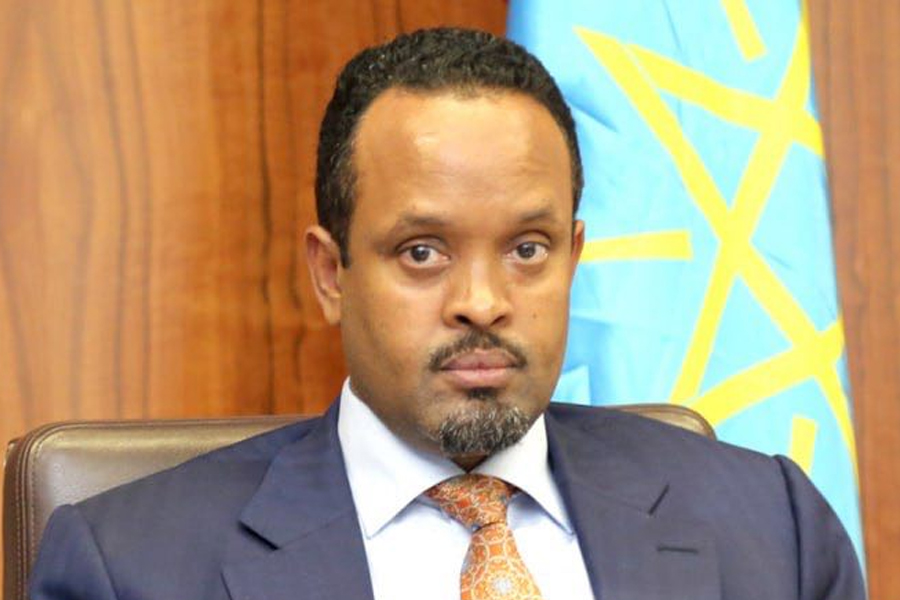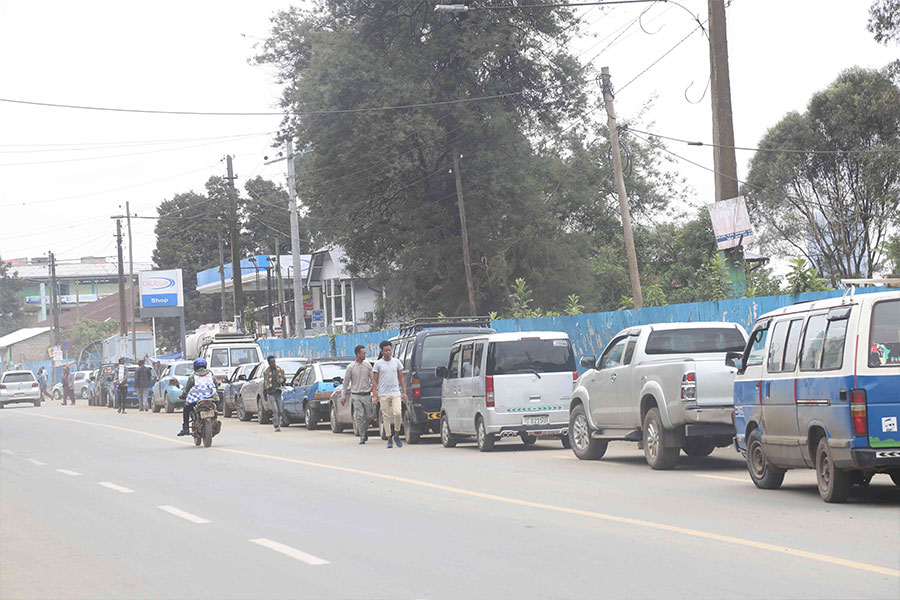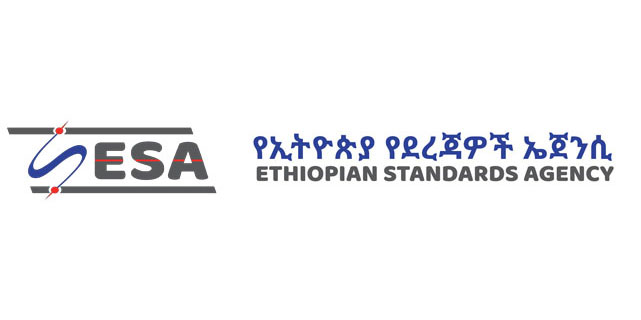
Viewpoints | Apr 20,2019
COVID-19 vaccination by personnel working in the health, financial and transport sectors will be mandatory following a recommendation from a task force comprised of officials from the Ministry of Health, representatives of the private sector, and religious leaders.
The task force is preparing its recommendation to be submitted to the federal government, Abdulaziz Suaudi, director of legal affairs at the Ministry, confirmed.
“The mandatory vaccination will be enforced soon,” Abdulaziz told Fortune.
Nearly 370,000 COVID-19 cases have been recorded since the pandemic hit Ethiopia in March 2020, while over 6,600 people have lost their lives to the virus.
Though the latest policy would have far-reaching effects on any vaccination requirements introduced in Ethiopia thus far, it would not be the first. Before the academic year, the Addis Abeba Education Bureau made it for teachers and staff employed by elementary and secondary schools in the capital to get vaccinated. Over the past few months, Ethiopian Airlines has also carried out a mandatory vaccination campaign for its crew members and staff.
Neither the federal government nor regional administrations can enforce a blanket vaccination order. However, authorities can make vaccination mandatory for specific groups and purposes, if there exists sufficient legal justification for doing so. The task force is also considering alternative measures for those who decline to get the jab, including compelling medical professionals and essential personnel working at the Ministry but unwilling to take the jab to take COVID-19 tests at their own expense every five days.
The health sector employs around 400,000 professionals across the country.
Muluken Yohannes (MD), national COVID-19 vaccination coordinator and advisor to the Minister of Health, disclosed that another measure under consideration is committing hesitant workers in the health, financial and transport sectors to cover their medical expenses if they are admitted to hospital contracting COVID-19.
Several countries have mandated COVID-19 vaccinations for large swaths of their populations, though few have done so in Africa. Egypt recently announced that civil servants would be required to get the jab to hold on to their jobs. Effective this week, the policy would also oblige those who do not wish to get vaccinated to take a COVID-19 test every other week at their own expense. Egypt has thus far vaccinated nearly 19pc of its population, well ahead of the average in Sub-Saharan Africa, where vaccination rates sit near four percent.
Close to 2.6 million people have been fully vaccinated in Ethiopia, accounting for less than three percent of the population. No less than 3.5 million Ethiopians have received at least one dose of a COVID-19 vaccine. The low vaccine penetration rate is partly due to the unpredictable COVID-19 vaccine donations from development partners. Ethiopia has received over 12 million doses of AstraZeneca, Sinopharm, Johnson & Johnson, and Pfizer. More than 60pc of these have yet to be used.
“There are no options other than administering what's in stock and waiting for another donation,” said Tinsae Alemayehu (MD), an infectious disease specialist.
However, health officials contend that a lack of public awareness and negative perception are also factors. Authorities at the Health Ministry admit that they have not done enough to bolster public awareness and encourage people to get vaccinated.
The Ministry is preparing to begin a national vaccination campaign next week, according to Muluken.
The Addis Abeba Health Bureau also announced this week it will begin a 10-day vaccination campaign drive in areas such as health centres, open markets, malls, banks, transportation hubs, and industrial parks. Tinsea says public health should be prioritised over individual health rights.
“However much an individual's health rights are extended, they have their limits if it compromises the larger public health,” said Tinsae.
He cautions that vaccination is key to alleviating the burden on the country's healthcare infrastructure. There are fewer than 50,000 hospital beds in Ethiopia - less than one for every 2,300 citizens.
PUBLISHED ON
Nov 13,2021 [ VOL
22 , NO
1124]

Viewpoints | Apr 20,2019

Fortune News | Sep 14,2024

Addis Fortune | May 07,2022

Fortune News | Oct 30,2021

Viewpoints | May 07,2022

Agenda | Jul 09,2022

Fortune News | Mar 07,2020

Radar | Jun 12,2023

Radar | Sep 28,2019

Radar | Apr 03,2021

Dec 22 , 2024 . By TIZITA SHEWAFERAW
Charged with transforming colossal state-owned enterprises into modern and competitiv...

Aug 18 , 2024 . By AKSAH ITALO
Although predictable Yonas Zerihun's job in the ride-hailing service is not immune to...

Jul 28 , 2024 . By TIZITA SHEWAFERAW
Unhabitual, perhaps too many, Samuel Gebreyohannes, 38, used to occasionally enjoy a couple of beers at breakfast. However, he recently swit...

Jul 13 , 2024 . By AKSAH ITALO
Investors who rely on tractors, trucks, and field vehicles for commuting, transporting commodities, and f...

Nov 1 , 2025
The National Bank of Ethiopia (NBE) issued a statement two weeks ago that appeared to...

Oct 25 , 2025
The regulatory machinery is on overdrive. In only two years, no fewer than 35 new pro...

Oct 18 , 2025
The political establishment, notably the ruling party and its top brass, has become p...

Oct 11 , 2025
Ladislas Farago, a roving Associated Press (AP) correspondent, arrived in Ethiopia in...